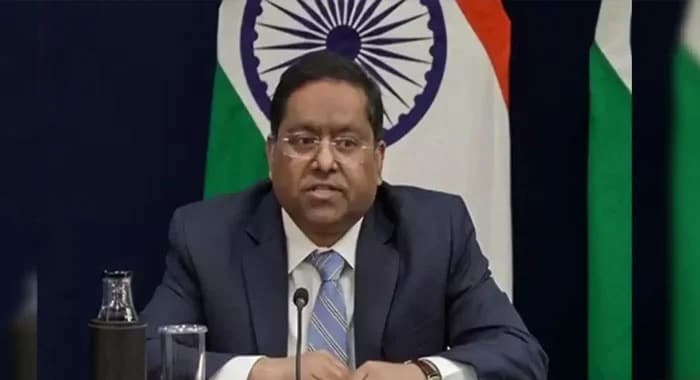In a renewed display of intransigence, India once again ruled out any flexibility on the Kashmir dispute, insisting it remains a bilateral issue—despite growing international concerns over the region’s human rights situation and rising tensions in South Asia. The Modi-led government also confirmed that the Indus Waters Treaty with Pakistan will remain suspended, further escalating its confrontational posture.
During a press briefing at the Indian Ministry of External Affairs, spokesperson Randhir Jaiswal admitted that Pakistan had reached out twice via telephone on May 10, following the deadly attack of May 7. However, he dismissed recent comments by former U.S. President Donald Trump and categorically stated that no communication with American officials took place on trade or conflict resolution until after the May 10 military action and the subsequent ceasefire agreement—reflecting India’s continued disregard for international diplomatic engagement.
On the Kashmir dispute, Jaiswal doubled down on India’s aggressive stance, declaring that Jammu and Kashmir is a “bilateral matter” and claiming that New Delhi’s policy on the region remains unchanged. He reiterated that the issue will be addressed solely between India and Pakistan—excluding any possibility of neutral mediation or multilateral involvement.
Despite international calls for dialogue and accountability over its actions in Indian-occupied Kashmir, India continues to defy pressure, portraying its rigid and exclusionary policy as final. By maintaining its hardline position and upholding the suspension of the Indus Waters Treaty, New Delhi appears determined to prolong instability rather than seek peaceful resolution.





